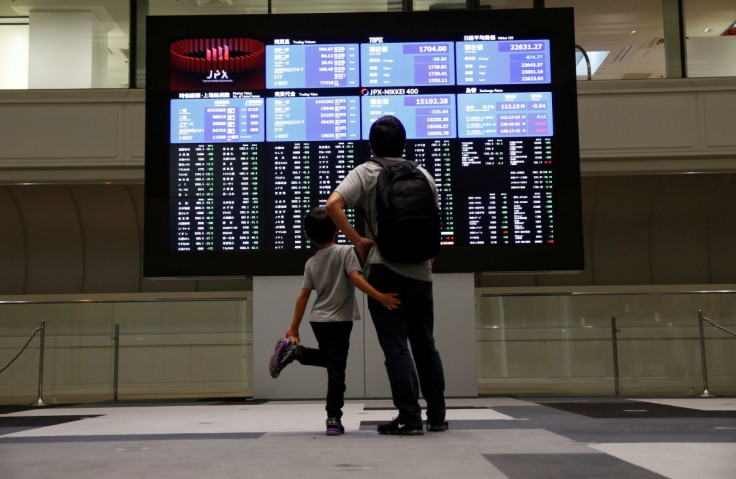Stock Recovery Takes A Breather Ahead Of U.S. Inflation Numbers

The rebound in share prices paused on Thursday as investors geared up for a crucial U.S. inflation report that should offer new clues on the pace of Federal Reserve interest rate hikes.
European stock indexes were slightly higher or unchanged on the day, while U.S. futures pointed to declines of between 0.1% and 0.3% at the open on Wall Street.
The pullback in government bond yields in recent days and a tech-fuelled rebound have helped broader stock markets rally this week, with a particularly strong performance Wednesday in the United States.
But most markets remain down sharply for the year -- the tech-dominated Nasdaq 100 by 8% -- after a January in which investors panicked about the impact of higher rates and less cheap money on highly valued shares.
The next big test for sentiment comes later in the form of U.S. inflation numbers. Data due at 1330 GMT is expected to show U.S. consumer inflation racing at a 7%-plus annualised clip in January, a level reminiscent of the inflation shocks of the 1970s and 1980s.
The Fed is broadly expected to begin raising rates at its March meeting although there is no clarity about the pace of tightening.
Money markets are certain of at least a quarter point Fed hike next month, and give 1-in-4 odds of a half point increase.
Craig Erlam, senior market analyst at OANDA, said investors seemed to be getting comfortable with four or five Fed hikes priced in for 2021.
"Of course, that depends on inflation not spiraling out of control, forcing the Fed to be more aggressive. The CPI data is expected to show prices rose 7.3% in January compared to a year ago, almost four times the Fed's target," he said.
"Another reading above here could spook the markets once more, which may explain the cautious advance we're seeing so far today," he added.
By 1210 GMT, the Euro STOXX was flat, while the MSCI World index chalked up a small 0.12% increase.
The FTSE 100 and the German DAX rose 0.19% and 0.38% respectively.
In Asia, Chinese blue chips lost 0.26% as investors took profits and worries about U.S. sanctions continued to weigh on sentiment.
Japan's blue-chip Nikkei closed 0.42% higher.
BOJ BUYING BONDS, RIKSBANK REMAINS DOVISH
Long-term bond yields continued Wednesday's retreat, with the 10-year U.S. Treasury yield slipping back to 1.923% from a near 2-1/2-year peak on Tuesday, before settling at 1.935% . Its German counterpart hovered below a three-year high hit on Tuesday. [US/][GOVD/EUR]
In a reminder that many central banks remain concerned about rising rates, the Bank of Japan announced that it would buy an unlimited amount of 10-year government bonds at 0.25%..
The 10-year government bond yield had hit 0.23% on Thursday, the highest since 2016 and close to the implicit 0.25% cap the BOJ set around its target of 0%.
The 10-year yield briefly fell after the BoJ announcement and was last at 0.22%. The yen, little moved, was last at 115.81 per dollar, down slightly on the session.
Sweden's central bank kept its policy broadly unchanged, saying it was too early to withdraw support for the economy and that surging inflation was temporary.
The crown fell and was last down 1% versus the euro.
Other currencies were largely in a holding pattern ahead of the inflation release, with the dollar index dipping slightly to 95.54. [FRX/]
"We think there aren't many downside risks to the dollar from today's release...as a slightly below consensus read should do very little to dent expectations on Fed tightening," ING analysts wrote in a research note.
"Instead, CPI numbers could be the trigger for markets to make a conviction call on a >2.0% terminal rate."
The euro rose 0.1% to $1.1434 while sterling added 0.3% to $1.357.
Gold held close to a two-week high, trading at $1,832 an ounce. [GOL/]
Crude oil prices rose with the U.S. West Texas Intermediate futures up 0.9% at $90.46 a barrel, while Brent crude futures gained 0.62% to $92.11 a barrel.
(Editing by Chizu Nomiyama)
© Copyright Thomson Reuters 2024. All rights reserved.




















